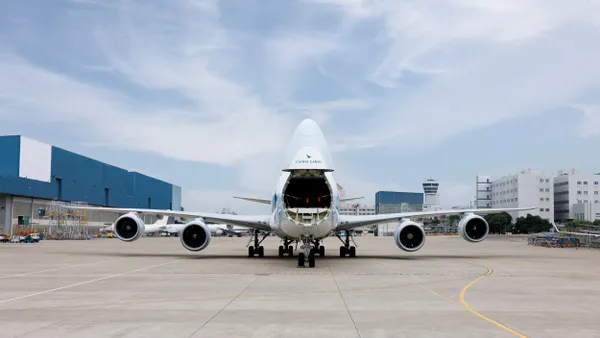Dive Brief:
- Less than a week after Florida Gov. Rick Snyder threatened to pull funding from the state's ports if they pursued a trade agreement with Cuba, the Port of Mobile stepped in to fill the gap, Alabama Today reported last week.
- Alabama was quick to pick up the slack however. Port officials from Alabama, already in Tampa for an international conference, worked to secure a deal with officials from Havana under the same terms as would have existed with the Florida ports.
- Currently, U.S. companies may only export some agricultural and food products to Cuba, due to the more than 50-year-old trade embargo against the island nation. Since Dec. 2015, however, U.S.-Cuba relations appear to be on an upward trend, leaving many companies hopeful to access the island nation's market.
Dive Insight:
The quickly-formed business deal between the Port of Mobile and Havana after Gov. Snyder's scuttling of a similar deal in Florida show both how U.S. trade policy directly affects ports, and perhaps more importantly, the intense degree of competition among East Coast ports.
Competition among U.S. ports has been ramping up as the opening of an expanded Panama Canal, renetworking of shipping routes and limited funding increase the pressure for ports to become regional trade hubs.
As larger vessels travel through the Panama Canal, East and Gulf Coast ports eyeing increased market share must engage in deepening, dredging and handling-capacity building projects to even receive the mega-vessels. To further their competitive advantage, ports are also investing in cold-storage, intermodal yards and other technology projects to increase the variety of goods and methods shipped.
It is no surprise, then, that when politics drive a state to reject a potential trading partner, another state will fill the gap. The goal for many is to become a pivotal piece of the U.S. trade puzzle (and bring in greater revenue) in the way the Ports of Los Angeles and Long Beach are today. Or at minimum, to not be left behind and end up in closure as the shipping industry shifts.













